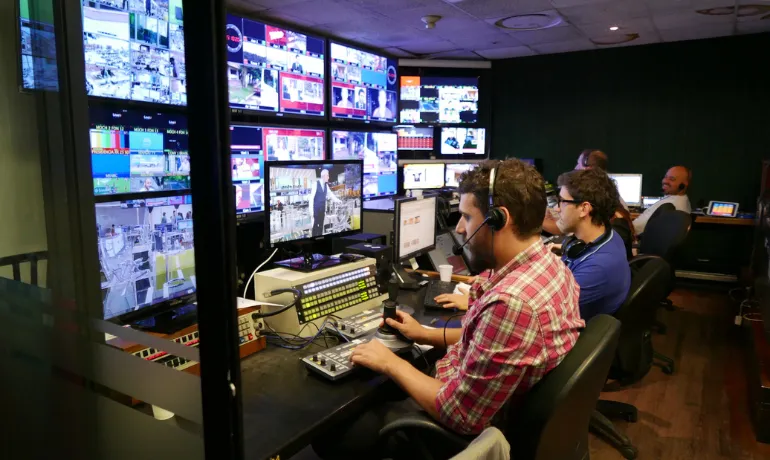As the UAE strives to diversify its energy sources and enhance sustainability, the integration of smart grids has become essential. Control rooms are at the heart of this transition, playing a critical role in managing power distribution and optimizing energy use across the country’s renewable energy initiatives. This blog explores how control rooms facilitate the effective management of smart grids in the UAE.
Understanding Smart Grids
Smart grids represent a significant evolution in energy management, utilizing digital technology to enhance the reliability, efficiency, and sustainability of electricity services. Key features include:
– Two-Way Communication: Smart grids enable real-time communication between utilities and consumers, allowing for better demand response and energy management.
– Integration of Renewables: They facilitate the integration of renewable energy sources such as solar and wind, supporting the UAE’s goal of increasing its renewable energy share.
– Enhanced Monitoring and Control: Smart grids use advanced sensors and smart meters to monitor energy flow, providing data that helps optimize energy distribution.
The Central Role of Control Rooms
Control rooms are essential for the effective operation of smart grids, providing a centralized facility for monitoring, control, and decision-making:
– Real-Time Monitoring: Control rooms oversee the entire power distribution network, using advanced software to track energy flow, detect anomalies, and ensure stability in the grid.
– Data Analysis and Forecasting: By analyzing data from various sources, control rooms can predict demand fluctuations, optimize energy dispatch, and enhance operational efficiency.
– Incident Management: In case of outages or disruptions, control rooms coordinate rapid response efforts, identifying issues and deploying maintenance teams to restore service.
Optimizing Energy Use
Effective energy management is crucial for sustainability, and control rooms play a vital role in this optimization:
– Demand Response Programs: Control rooms can implement demand response strategies, adjusting energy supply based on real-time demand data. This not only helps balance the load but also encourages energy conservation among consumers.
– Integration with Smart Devices: Smart appliances and IoT devices allow consumers to manage their energy use actively. Control rooms oversee these interactions, promoting efficient energy consumption across the grid.
– Storage Management: As energy storage technologies advance, control rooms are responsible for managing battery systems, ensuring that energy is stored when production exceeds demand and released when needed.
Case Studies in the UAE
The UAE has made significant strides in integrating smart grid technologies, with control rooms playing a pivotal role:
– Masdar City: Known for its sustainable urban planning, Masdar City utilizes a smart grid framework that relies on its control room to manage renewable energy sources and optimize energy consumption in real-time.
– Dubai Electricity and Water Authority (DEWA): DEWA has implemented a smart grid initiative that includes advanced control rooms equipped with cutting-edge technology to manage energy distribution efficiently and enhance customer service.
Challenges and Future Directions
While control rooms are vital for smart grid management, several challenges remain
– Cybersecurity Threats: With increased digitalization, control rooms must implement robust cybersecurity measures to protect critical infrastructure from cyber threats.
– Technological Upgrades: Continuous investment in technology and training is required to keep pace with advancements in smart grid capabilities.
– Public Engagement: Engaging the public in energy-saving initiatives and smart grid technologies is essential for achieving overall energy efficiency.
Conclusion
Control rooms are central to the effective management of smart grids in the UAE, facilitating real-time monitoring, optimizing energy use, and ensuring seamless integration of renewable energy sources. As the UAE continues its journey towards a sustainable energy future, the role of control rooms will become increasingly vital in enhancing the reliability and efficiency of its power distribution networks.

